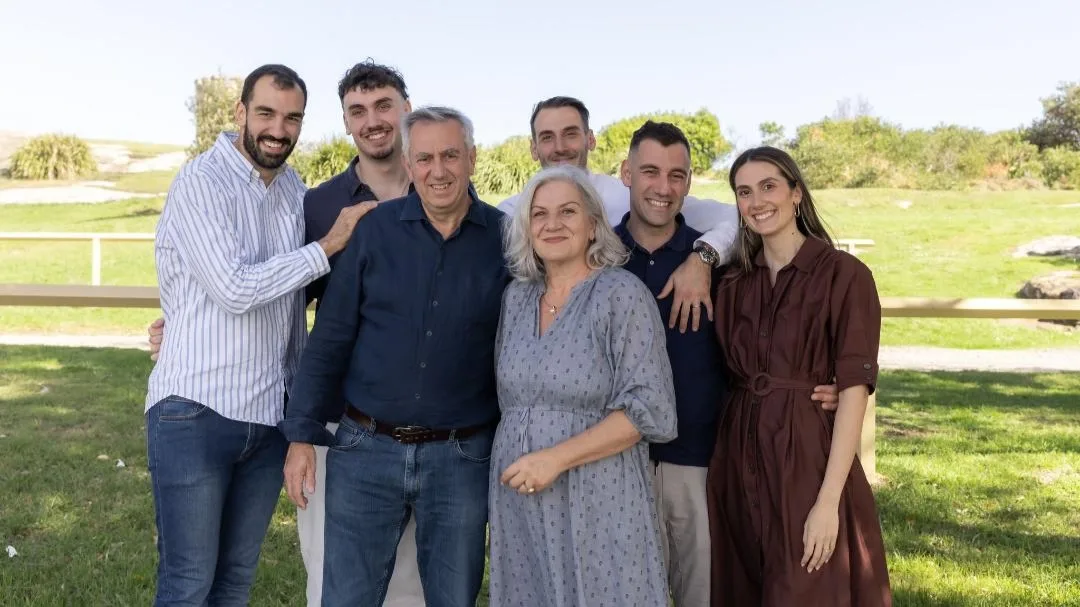By Dimitrios Kametopoulos
A young Greek Australian from Bexley, a Greek-populated suburb of Sydney, has spread his wings and is showcasing his athletic talent in Greece, devoting his full love to sport and, more specifically, to volleyball.
A few days ago, I spoke with the Australian-born Greek, Dimitri Sidiropoulos, who has roots from Macedonia, Pontos, Kefalonia, and Crete. He shared a few things about his life, his passion for volleyball, how he joined Greek professional volleyball, and what it means to be a Greek born in Australia.
Dimitri, tell us a little about yourself.
I was born here in Sydney. I’m now 30 years old and come from a big family with five siblings in total. Regarding my heritage, I am half-Macedonian from my father’s side – my grandfather was Pontian, born in Agios Vartholomaios near Florina in Western Macedonia, and my grandmother was born in Sindos, near beautiful Thessaloniki, although her family originally came from Crete. On my mother’s side, my grandparents were from the stunning island of Kefalonia, specifically from the villages of Demoutsantata and Troianata near Argostoli. So, I am also half Ionian islander. My father, Panagiotis, was born in our beloved Macedonia but came to Australia at a very young age, while my mother, Anna, was born here in Sydney. As you can see, I’m a Greek… pan-Hellenic, with roots from all over Greece!
When did your love for volleyball begin?
I started playing volleyball around the age of 15. I was attending a private school here in Sydney, Trinity Grammar School. My brother Dionysis played volleyball at school and I used to watch him play like a professional, which made me very happy. That’s how my love for volleyball started. I was lucky to have my Greek Australian coach and sports teacher, Andrew Simos, who taught me about volleyball and nurtured my love for the sport.
Within this framework, I also took part in volleyball trials and was selected to join state volleyball teams. At 17, I was even selected for the Australian U-17 National Team for a tournament within Australia. That’s when I started to think more seriously – maybe I could even play this sport professionally. After finishing school and while studying at university, I travelled back and forth to Greece and trained with various teams. It was during these moments that I realised how much I loved this sport and how much I wanted to pursue it professionally.
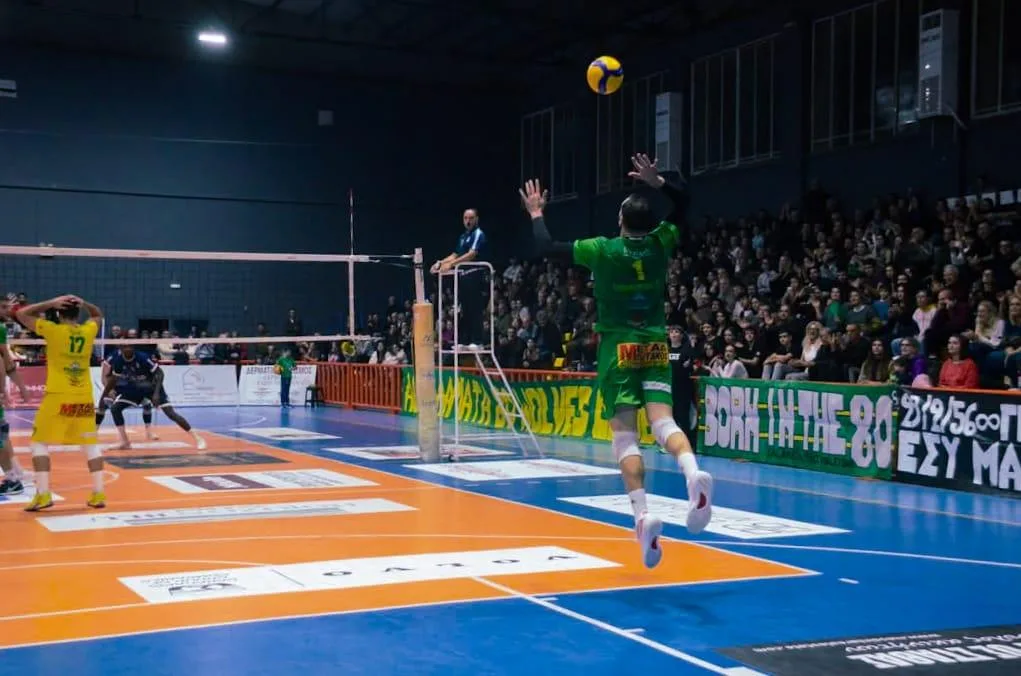
Which countries has volleyball taken you to?
So far, I’ve played in five countries: Greece, Sweden, Slovenia, Hungary, and Austria. I’ve also competed in various tournaments that allowed me to travel to other countries, such as Croatia and Italy. Volleyball is a globally played sport. I feel very lucky to have been able to travel and get to know other countries, cultures, and people. Some of my best friends are people I met while playing volleyball, and I’m very happy about that.
Which Greek teams have you played for so far?
So far, I’ve played for Kalamata 80 during the 2018–2019 season. Last year and this year, during the 2024–2025 season, we managed to promote the team to a higher division. It wasn’t easy – it was a difficult challenge, but we succeeded because we became a very good and capable team. We won the Men’s Pre-League, and so we were promoted to the Volley League. It was the team that gave me my first opportunity in professional volleyball.
During the 2023–2024 season, I played for PAOK. That season we also won the Super Cup. From this September 2025, I’ll be playing for ARIS Thessaloniki, and our goal is again promotion to the Volley League. I now live in the capital of Macedonia, so everything is convenient for me.
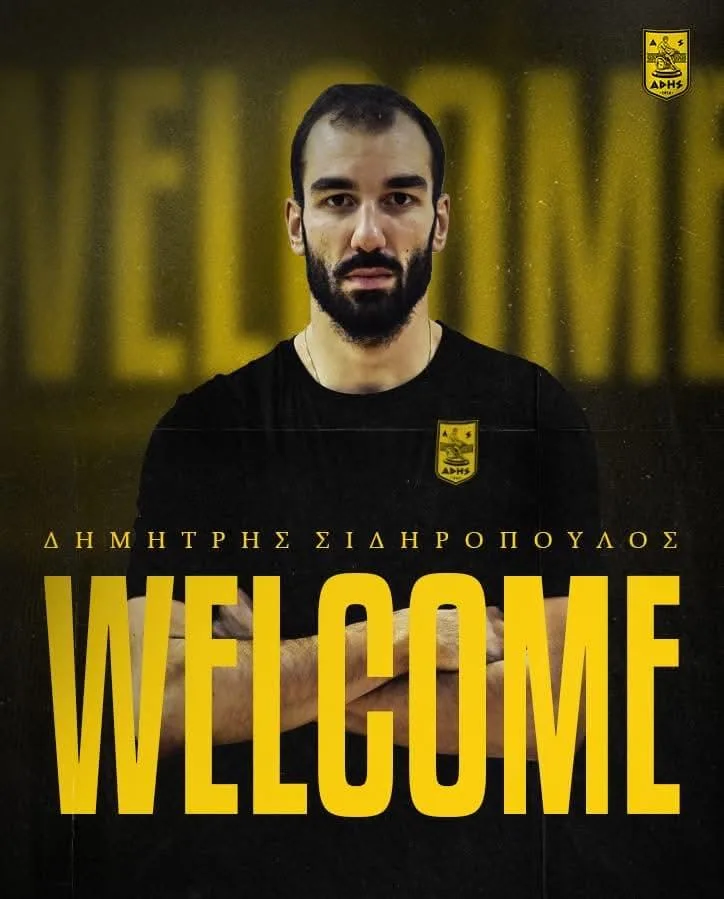
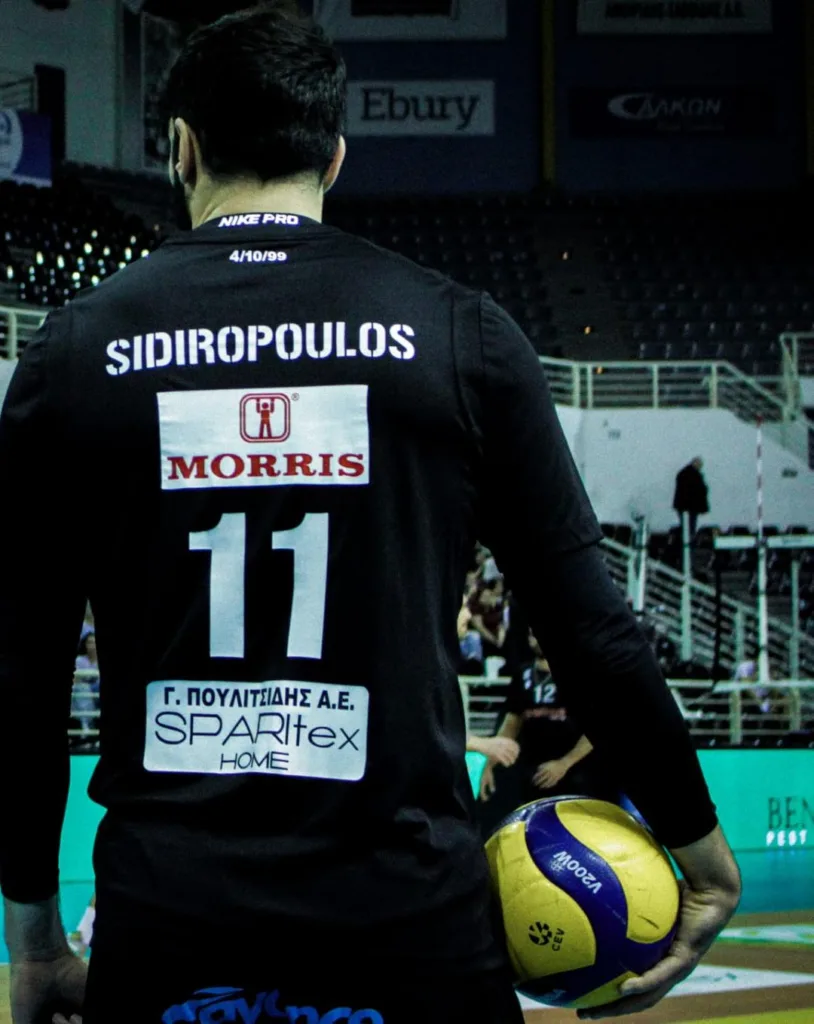
How do you feel about this season with your new team?
The truth is I can’t wait for this season. There are some teams in Greece we’ve all heard of, even back in Australia, like ARIS, AEK, Olympiacos, Panathinaikos, and PAOK. Every time I play for such a club, every time I’m part of such a big team, it always gives me motivation and positive energy. As I said before, our goal this season is to get promoted to the Volley League and return the team to where it belongs. We have a good team, but it won’t be an easy championship since there are other good teams with the same goal. We’ll see how it goes as the season progresses. I know we’ll work hard and do everything we can to achieve our goal.
How have your teammates in Greek teams received you?
So far, I’ve been very lucky with the teammates I’ve had. As with any team sport and in life in general, it takes some time for a team to really ‘gel’ and succeed. Sometimes there are difficulties, but there are always ways to overcome them – and that’s what really matters in the end. For me personally, Greek is my second language, and sometimes it’s a bit harder for me to express exactly what I want to say, but luckily I have great teammates who understand that I was born outside of Greece and help and accept me as I am.
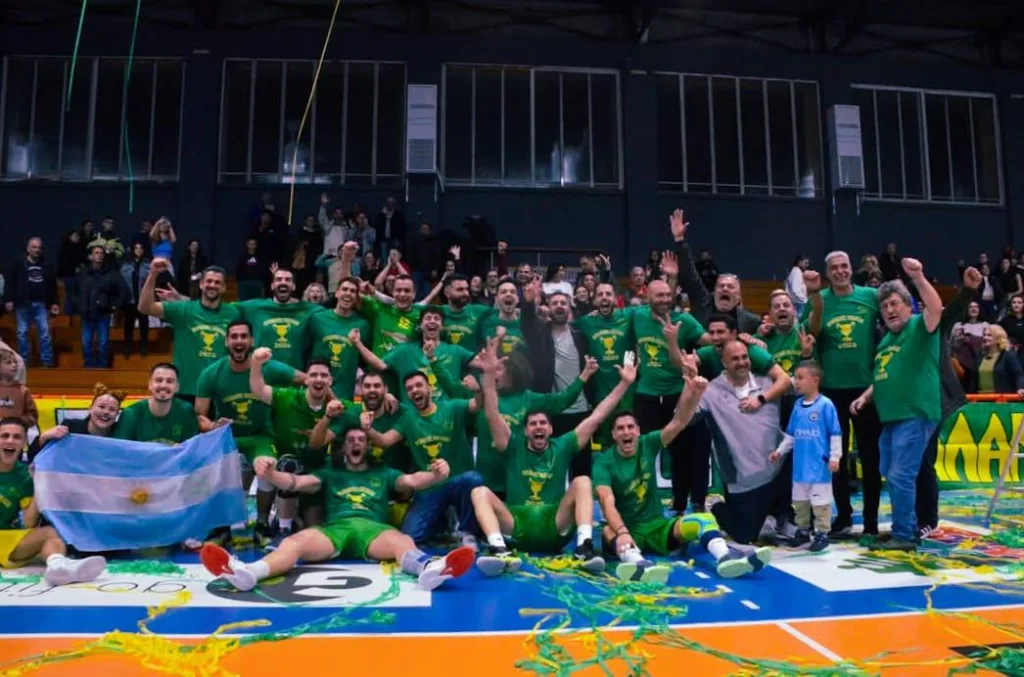
What are your dreams for the future regarding your volleyball career in Greece?
So far, the truth is I’ve achieved many of the goals I had when I started my career, and I feel very lucky to be able to say that. But for this year, the dream is definitely to promote our team. Beyond that, I have a few other dreams in mind, but if you don’t mind, I’d prefer to keep those to myself for now.
Now tell us, which Greek sports team do you support?
The truth is, here in Australia, we didn’t grow up with Greek sports, and my family didn’t follow Greek sports much. The two things I do remember as a Greek Australian kid, as a kid of the diaspora, are when the Greek National Football Team won the Euro in 2004 – I still get goosebumps thinking about it – and when the Greek National Basketball Team beat the USA in the 2006 World Cup! Unbelievable moments of pride. Of course, in Australia, we knew about the big teams like Olympiacos, Panathinaikos, PAOK, AEK, and ARIS, and maybe that’s why now when I play for or against these teams, I get a very strong sense of pride for our Greece, because I know the history behind these clubs.
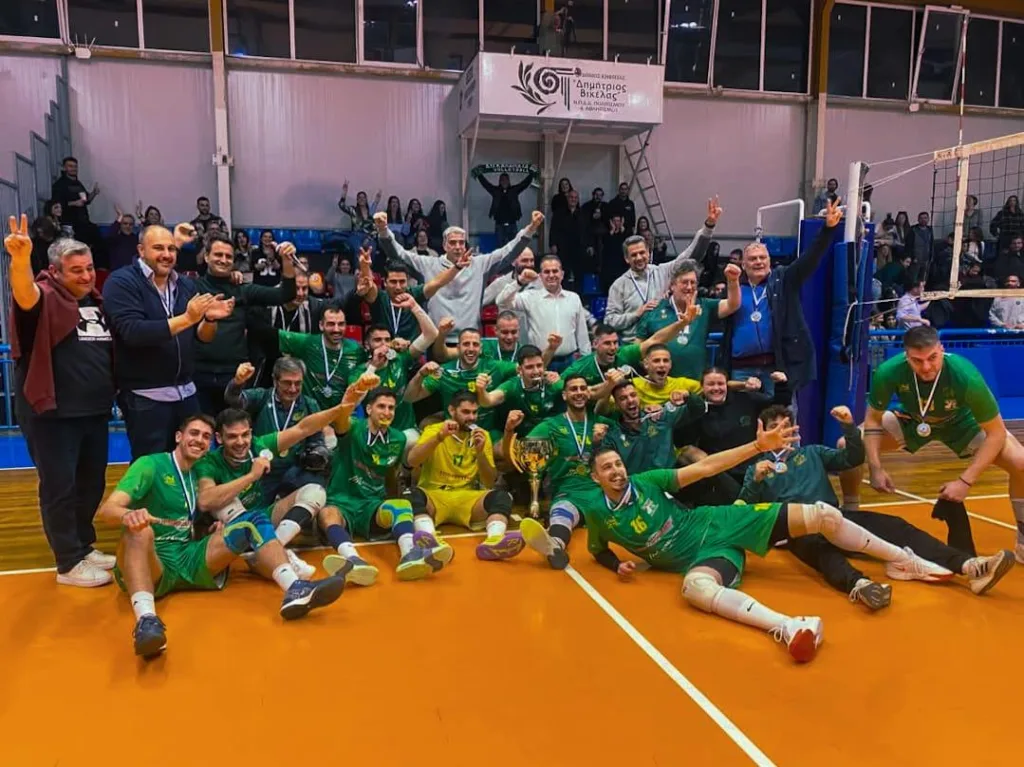

Now… tell us which Australian team you support?
That’s a bit more complicated. The teams here in faraway Australia aren’t like the ones in Greece. Each sport has its own teams. We have many sports here, like Rugby League – I support the St George Illawarra Dragons. I also really like cricket and Rugby Union. In football, I support Sydney FC, where I’m currently doing my placement as part of my postgraduate studies at university in High Performance Sport.
What does it mean to you to be a Greek born in Australia?
That’s a great question. I feel proud and very lucky. I’m proud of my Greek heritage from Macedonia to Crete, my roots, and everything my family has accomplished and continues to accomplish. I feel lucky to live in two beautiful and different cultures and countries. I try to take the best from both cultures and keep them in my life.
Luckily, I grew up in a very Greek household where we spoke both Greek and English. As children, we went to Australian schools, but our parents did a wonderful job helping us keep our Greek roots, customs, and language. All this came through small things like Orthodox Easter, Christmas, Epiphany, Greek afternoon school, and traditional Greek dancing. I’m very grateful to my family, my parents, and my grandparents for making me a proud Greek Australian.
I learned Greek here in Sydney, even taking Modern Greek as one of my six subjects in my final years of school for the HSC at both Continuers and Extension levels, earning high marks in the exams. That made me very happy and proud of my efforts and studies in the final years of high school.
What things express your Greek identity, and what does Greece mean to you?
As I mentioned before, I grew up in a nice big Greek family, and we’ve always kept our Greek roots, something that, as I get older, becomes even more important in my life. Now, what expresses my Greek identity? It’s hard to pick just one thing. I know I feel Greek! I’ve been living in Greece for 7–8 years now, mainly in Thessaloniki. I dance traditional Greek dances, I listen to Greek music, and we eat Greek food at home. I also try to learn to cook Greek food as best I can – thankfully, my mum helps me with that. All these things help me keep and express my Greek identity.
Now, what does Greece mean to me… it means family, it means filotimo, warmth, life, love, and strength. It’s my roots. I think Greeks of the diaspora have that feeling and will always have a part of their heart in Greece – and that’s how I feel too.
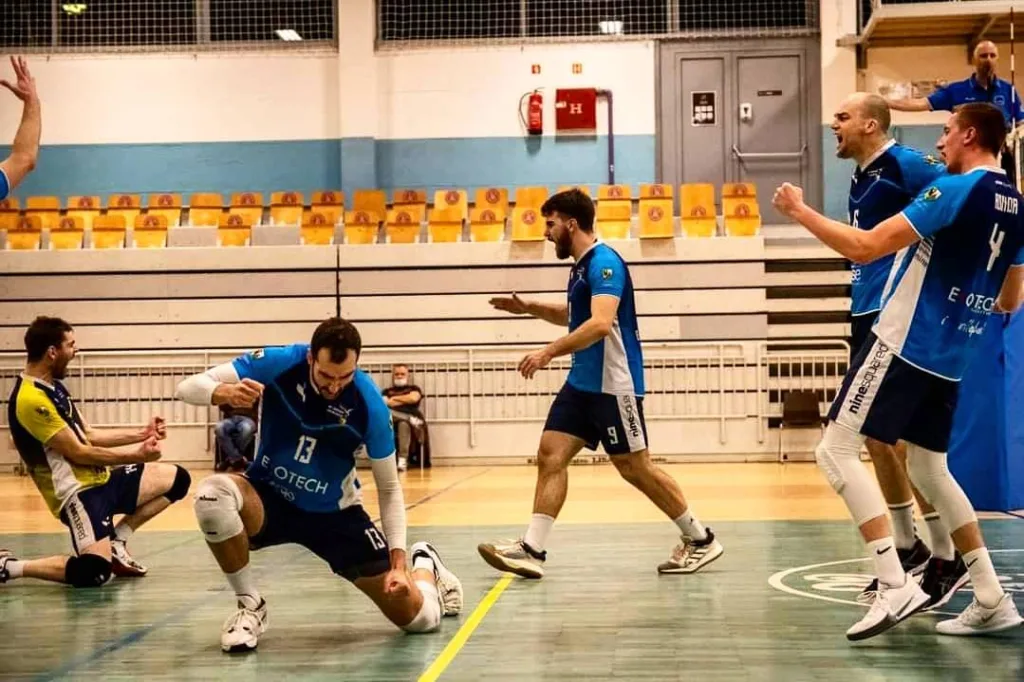
As we wrap up this lovely interview with The Greek Herald, what’s your message to other Greek Australian kids about the Greek language, Greek culture, and sport in general?
My message about sport… I’d say it’s a great example of life. There will be wonderful and joyful moments, but also tough ones. Through it all, you learn more about yourself. I’d encourage many people to get involved in sport, even briefly, because… they might just discover a new love. As for Greek culture, language, and our homeland, our Greece… I’d say we have a beautiful culture and language. We have an incredible and vast history, delicious cuisine, beautiful songs, and stunning landscapes. Greece is unique, simple and complex at the same time – and that’s what makes it so beautiful. Explore it, learn about it, live it! Greek is one of the most expressive languages, and our kids here in Australia must learn it, and parents should speak it at home. Let’s not deny them this beauty, the knowledge of Greek – the ‘mother’ and base of the Indo-European languages!
Dimitri, we wish you every success in your goals and hope you continue to proudly raise both the Greek and Australian flags wherever you go.
Mr Kametopoulos, thank you and The Greek Herald for giving me the opportunity to speak about myself during this brief return to Australia for family and academic reasons, before I head back to our beloved Greece in early August to continue my sporting career in the Motherland. Thank you very much from the bottom of my heart, and I wish all the best to all the Greeks of Australia.
